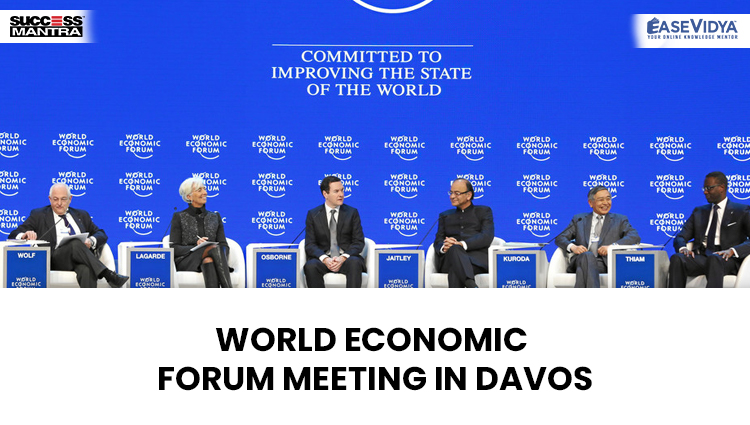
WORLD ECONOMIC FORUM MEETING IN DAVOS
WORLD ECONOMIC FORUM MEETING IN DAVOS
The annual meeting of the World Economic Forum (WEF) in Davos, Switzerland is scheduled from May 22nd to 26th 2022. The meeting was originally scheduled for January 17-21st but was postponed due to the outbreak of the Omicron variant.
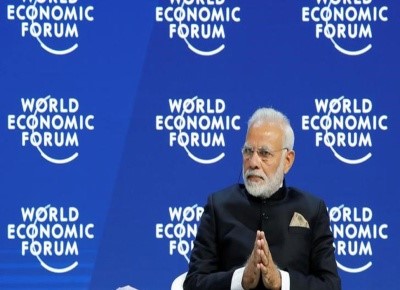
Current Affairs Notes By Success Mantra Coaching Institute GTB Nagar Delhi CLICK HERE
WHAT ARE THE FOCUS AREAS OF THE WEF MEETING?
The following topics will be focused on at the WEF meeting:
- Pandemic recovery
- Tackling climate change
- Building a better future for work
- Accelerating stakeholder capitalism
- Harnessing the technologies of the Fourth Industrial Revolution.
WHO IS ATTENDING THE MEETING FROM INDIA?
- Hardeep Singh Puri, Minister of Petroleum and Natural Gas will attend the event on Energy Outlook: Overcoming the Crisis.
- YS Jagan Mohan Reddy, CM of Andhra Pradesh, will attend the event on Future-proofing Health Systems.
- Aaditya Thackeray, Tourism Minister of Maharashtra will attend Forum Initiative Briefing – Global Plastic Action, Partnership event, and Embracing Climate Adaptation Action event.
- KT Rama Rao, Information Technology Minister of Telangana will attend the event on AI on the Street: Managing Trust in the Public Square.
What is the theme of the WEF meeting in 2022?
The theme for WEF annual Meeting 2022 is ‘working Together, restoring Trust’. This year’s WEF meeting will be the first global in-person leadership event since the start of the COVID-19 pandemic.
KEY POINTS OF PREVIOUS WEF MEETING
One Earth, One Health: During the course of Covid-19, India saved many lives by exporting essential medicines and vaccines by following its vision of "One Earth, One Health". India has delivered 1154.173 lakh doses of Covid-19 vaccines to 97 countries till 31st December 2021. India is the world's third-largest pharmaceutical producer and is considered 'pharmacy to the world’.
Pro-Planet People (P3) Approach: Proposed the idea of the “P3 (Pro-Planet-People) movement” that underscores India’s commitments to climate change at the global forum (UNFCCC COP 26). Reiterated India’s “clean, green, sustainable, and reliable” energy goals which dwell on achieving a net zero carbon emission target by 2070. Making LIFE (Lifestyle for Environment - given by the Indian PM at UNFCCC COP 26 Conference) into a mass movement can be a strong foundation for P3. LIFE is a vision of a resilient and sustainable lifestyle that will come handy in dealing with the climate crisis and other unpredictable challenges of the future. Throwaway culture and consumerism has enhanced the climate challenge.
WORLD ECONOMIC FORUM
The World Economic Forum (WEF) is a Swiss nonprofit foundation established in 1971, based in Geneva, Switzerland. Recognized by the Swiss authorities as the international institution for public-private cooperation. Founder and Executive Chairman: Klaus Schwab.
Some major reports published by WEF are:
- Energy Transition Index
- Global Competitiveness Report
- Global IT Report Global Gender Gap Report
- Global Risk Report
- Global Travel and Tourism Report
RELATED: INDIA JOINED FIRST MOVERS COALITION
India recently joined a global public-private partnership initiative called the First Movers Coalition. The initiative was launched by President of the USA Joe Biden and the World Economic Forum (WEF) at COP26. It was joined by 50 new corporate members with a collective market capitalization of USD 8.5 trillion. The First Movers Coalition aims to decarbonizes the most carbon-intensive sectors such as the heavy industry and long-distance transport sectors, which are responsible for 30% of global emissions. It is expected that emissions from these sectors will increase to around 50% by mid-century unless urgent actions are taken on clean technology innovation. The targeted sectors of the First Movers Coalition include aluminum, aviation, chemicals, concrete, shipping, steel, and trucking.
Which countries joined the coalition and what are their commitments?
Apart from India, Denmark, Italy, Japan, Norway, Singapore, Sweden, and the UK joined the First Movers Coalition as government partners. India, Japan, and Sweden also joined the steering board of the First Movers Coalition. The member countries pledged to create early markets for clean technologies through appropriate policies and engagements with the private sector. They also committed to purchasing a certain percentage from suppliers using zero-carbon solutions, even at a premium cost. If purchases from public and private sectors increase in this decade it will ensure affordability of clean technologies and also ensure long-term transformation.
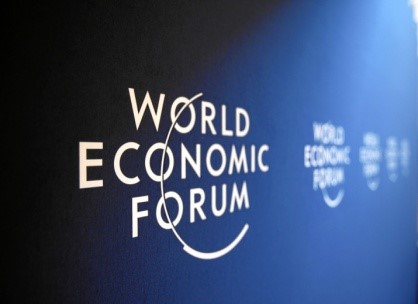
INDIA TO REACH CARBON NEUTRALITY BY 2070
India announced that it will reach carbon neutrality by 2070 as part of a five-point action plan that included reducing emissions to 50% by 2030. India made this pledge at the Conference of the Parties (COP) 26 climate summit in Glasgow, where it also urged developed countries to deliver on their promise of climate financing. However, India hasn’t submitted an updated Nationally Determined Contribution (NDCs) with these commitments to the United Nations Framework Convention on Climate Change (UNFCCC) yet. More than 70 countries have promised to become Net Zero by the middle of the century, and this is being considered vital for meeting the Paris Agreement goal of keeping global temperatures within 2 degrees Celsius from pre-industrial times. India’s Net Zero target of 2070 silences its critics but it is along expected lines. The big thing here is not the target itself but the fact that India finally relented and decided to take up a target, something it had been holding back on for quite some time. In its climate action plan submitted under the Paris Agreement, India had promised to reduce its emissions intensity, or emissions per unit of Gross Domestic Product, by 33 to 35% by the year 2030 compared to 2005 levels.
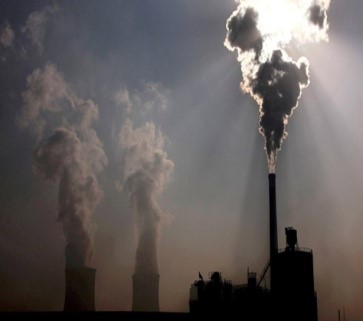
REDUCING INDIA'S EMISSIONS:
India has the lowest per capita emissions of the world’s major economies -- emitting 5% of the total, despite accounting for 17% of the world’s population. According to the World Resources Institute, India’s total greenhouse gas emissions were about 3.3 billion tonnes in 2018. It’s projected to rise above 4 billion tonnes per year by 2030. That would mean between now and 2030, India could be emitting anywhere between 35 to 40 billion tonnes at the current rates of growth. Cutting 1 billion tonnes would, therefore, represent a reduction of 2.5 to 3% in its absolute emissions in the business-as-usual scenario in the next nine years.
PRAVAHINI Current Affairs Notes By Success Mantra Coaching Institute GTB Nagar Delhi CLICK HERE
TEST YOURSELF
Q.1 Consider the given options & state which of the following is correct regarding the theme for the annual meeting of WEF, 2022?
- Stakeholders for a Cohesive and Sustainable World
- Shaping an Equitable, Inclusive and Sustainable Recovery
- Working Together, restoring Trust: ANSWER
- None of the above-mentioned
Q.2 During the present annual meeting of the World Economic Forum (WEF), which of the following state governments have signed an (MoU) with 23 companies, worth over 30,000 crore?
- Telangana
- Maharashtra: ANSWER
- Karnataka
- None of the above-mentioned
Q.3 Which of the following countries have recently led the First Movers' coalition Initiative, which India has also joined recently?
- United States of America: ANSWER
- Canada
- Russia
- Germany
Q.4 India announced that it will reach carbon neutrality by _______ as part of a five-point action plan that included reducing emissions to 50% by 2030.
- 2025
- 2050
- 2070: ANSWER
- None of the following
Q.5 The World Economic Forum (WEF) is a Swiss nonprofit foundation established in 1971 & headquartered at which of the following places?
- Berne, Switzerland
- Gland, Switzerland
- Davos, Switzerland
- Geneva, Switzerland: ANSWER










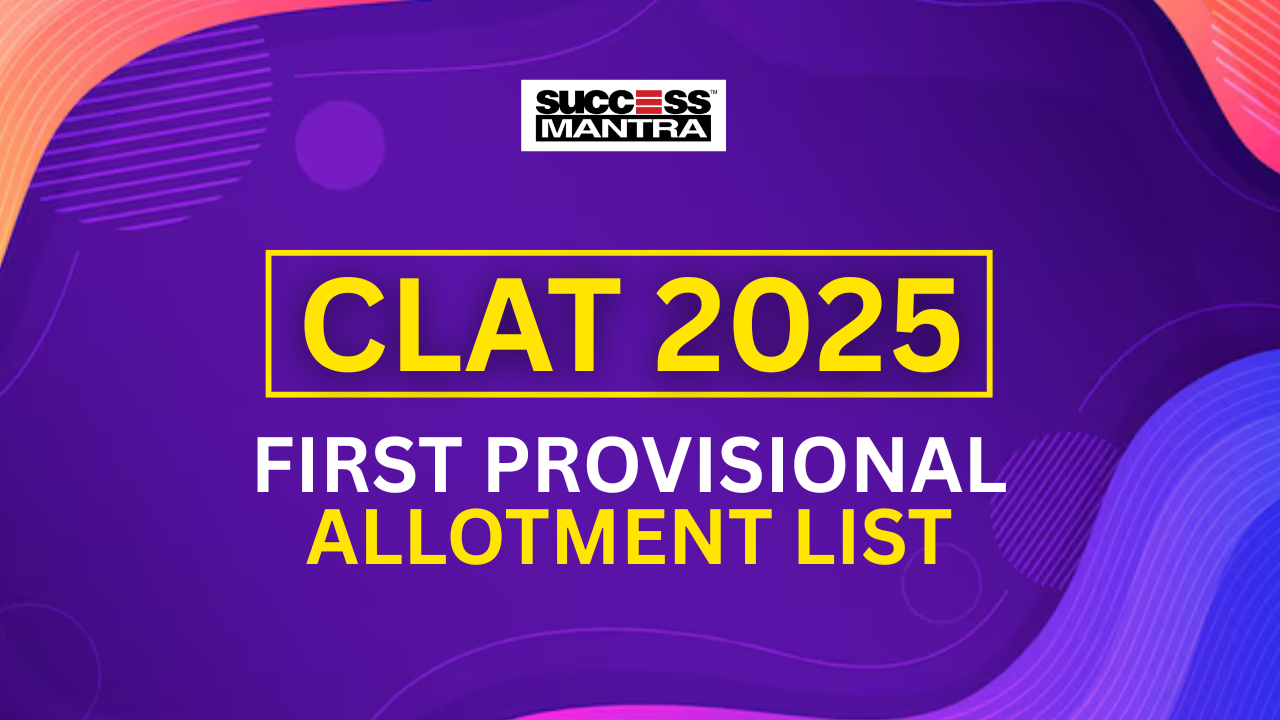


bswxvddzeq
WORLD ECONOMIC FORUM MEETING IN DAVOS | Read Daily Article Editorials Only On Success Mantra Blog | Daily Article | Monthly Article | Weekly Article | Yearly Article | Most Requesting Articles | Legal Awareness Articles | Current Affairs | Passage Based Current Affairs | One Linear Current Affairs | Current Affairs For CLAT | Current Affairs For AILET | Current Affairs For Slat | Legal Aptitude Current Affairs | Law Current Affairs | Current Event | Current Affairs Pdf | Current Affairs Pdf In English | Current Affairs Pdf Free Download | Current Affairs MCQ | Current Affairs MCQS | Current Affairs Work Sheet | Current Affairs UPSC | Current Affairs BBA | Current Affairs BCA | Current Affairs BJMC | Current Affairs NCHMJEE | Daily Editorial | Monthly Editorial | Weekly Editorial | Yearly Editorial | Most Asking Editorials | Legal Awareness Editorials | Current Editorial | Passage Based Current Editorial | One Linear Current Editorial | Current Editorial For CLAT | Current Editorial For AILET | Current Editorial For Slat | Legal Aptitude Current Editorial | Law Current Editorial | Current Event | Current Editorial Pdf | Current Editorial Pdf In ENGLISH | Current Editorial Pdf Free Download | Current Editorial MCQ | Current Editorial MCQS | Current Editorial Work Sheet | Current Editorial UPSC | Current Editorial BBA | Current Editorial BCA | Current Editorial BJMC | Current Editorial NCHMJEE | Latest News In India | Latest News In Hindi | Latest News Delhi | Latest News Today India | Latest News Live | 3 Latest News | Latest News Today Delhi | Latest News Aajtak | News Articles India | News Articles For Students | News Articles 2022 | News Articles In English | News Articles In Hindi | News Article Example | Short News Articles | News Article Meaning | Success Mantra Delhi | CLAT Coaching In Delhi | Best CLAT Du LLB Institute In Delhi | Read Daily Article Editorials Only On Success Mantra Blog [url=http://www.g08ys1idef9150myh3r74gi3h4w3411ms.org/]ubswxvddzeq[/url] <a href="http://www.g08ys1idef9150myh3r74gi3h4w3411ms.org/">abswxvddzeq</a> bswxvddzeq http://www.g08ys1idef9150myh3r74gi3h4w3411ms.org/
ogzkdqnm
WORLD ECONOMIC FORUM MEETING IN DAVOS | Read Daily Article Editorials Only On Success Mantra Blog | Daily Article | Monthly Article | Weekly Article | Yearly Article | Most Requesting Articles | Legal Awareness Articles | Current Affairs | Passage Based Current Affairs | One Linear Current Affairs | Current Affairs For CLAT | Current Affairs For AILET | Current Affairs For Slat | Legal Aptitude Current Affairs | Law Current Affairs | Current Event | Current Affairs Pdf | Current Affairs Pdf In English | Current Affairs Pdf Free Download | Current Affairs MCQ | Current Affairs MCQS | Current Affairs Work Sheet | Current Affairs UPSC | Current Affairs BBA | Current Affairs BCA | Current Affairs BJMC | Current Affairs NCHMJEE | Daily Editorial | Monthly Editorial | Weekly Editorial | Yearly Editorial | Most Asking Editorials | Legal Awareness Editorials | Current Editorial | Passage Based Current Editorial | One Linear Current Editorial | Current Editorial For CLAT | Current Editorial For AILET | Current Editorial For Slat | Legal Aptitude Current Editorial | Law Current Editorial | Current Event | Current Editorial Pdf | Current Editorial Pdf In ENGLISH | Current Editorial Pdf Free Download | Current Editorial MCQ | Current Editorial MCQS | Current Editorial Work Sheet | Current Editorial UPSC | Current Editorial BBA | Current Editorial BCA | Current Editorial BJMC | Current Editorial NCHMJEE | Latest News In India | Latest News In Hindi | Latest News Delhi | Latest News Today India | Latest News Live | 3 Latest News | Latest News Today Delhi | Latest News Aajtak | News Articles India | News Articles For Students | News Articles 2022 | News Articles In English | News Articles In Hindi | News Article Example | Short News Articles | News Article Meaning | Success Mantra Delhi | CLAT Coaching In Delhi | Best CLAT Du LLB Institute In Delhi | Read Daily Article Editorials Only On Success Mantra Blog <a href="http://www.g8pg7064a67q8fyo5r485vblwtfa1614s.org/">aogzkdqnm</a> [url=http://www.g8pg7064a67q8fyo5r485vblwtfa1614s.org/]uogzkdqnm[/url] ogzkdqnm http://www.g8pg7064a67q8fyo5r485vblwtfa1614s.org/
ppczyqmrgw
WORLD ECONOMIC FORUM MEETING IN DAVOS | Read Daily Article Editorials Only On Success Mantra Blog | Daily Article | Monthly Article | Weekly Article | Yearly Article | Most Requesting Articles | Legal Awareness Articles | Current Affairs | Passage Based Current Affairs | One Linear Current Affairs | Current Affairs For CLAT | Current Affairs For AILET | Current Affairs For Slat | Legal Aptitude Current Affairs | Law Current Affairs | Current Event | Current Affairs Pdf | Current Affairs Pdf In English | Current Affairs Pdf Free Download | Current Affairs MCQ | Current Affairs MCQS | Current Affairs Work Sheet | Current Affairs UPSC | Current Affairs BBA | Current Affairs BCA | Current Affairs BJMC | Current Affairs NCHMJEE | Daily Editorial | Monthly Editorial | Weekly Editorial | Yearly Editorial | Most Asking Editorials | Legal Awareness Editorials | Current Editorial | Passage Based Current Editorial | One Linear Current Editorial | Current Editorial For CLAT | Current Editorial For AILET | Current Editorial For Slat | Legal Aptitude Current Editorial | Law Current Editorial | Current Event | Current Editorial Pdf | Current Editorial Pdf In ENGLISH | Current Editorial Pdf Free Download | Current Editorial MCQ | Current Editorial MCQS | Current Editorial Work Sheet | Current Editorial UPSC | Current Editorial BBA | Current Editorial BCA | Current Editorial BJMC | Current Editorial NCHMJEE | Latest News In India | Latest News In Hindi | Latest News Delhi | Latest News Today India | Latest News Live | 3 Latest News | Latest News Today Delhi | Latest News Aajtak | News Articles India | News Articles For Students | News Articles 2022 | News Articles In English | News Articles In Hindi | News Article Example | Short News Articles | News Article Meaning | Success Mantra Delhi | CLAT Coaching In Delhi | Best CLAT Du LLB Institute In Delhi | Read Daily Article Editorials Only On Success Mantra Blog <a href="http://www.gw13kty1h71x15oa4hh83678c7z4bqm6s.org/">appczyqmrgw</a> [url=http://www.gw13kty1h71x15oa4hh83678c7z4bqm6s.org/]uppczyqmrgw[/url] ppczyqmrgw http://www.gw13kty1h71x15oa4hh83678c7z4bqm6s.org/
mhhdlsqcdk
WORLD ECONOMIC FORUM MEETING IN DAVOS | Read Daily Article Editorials Only On Success Mantra Blog | Daily Article | Monthly Article | Weekly Article | Yearly Article | Most Requesting Articles | Legal Awareness Articles | Current Affairs | Passage Based Current Affairs | One Linear Current Affairs | Current Affairs For CLAT | Current Affairs For AILET | Current Affairs For Slat | Legal Aptitude Current Affairs | Law Current Affairs | Current Event | Current Affairs Pdf | Current Affairs Pdf In English | Current Affairs Pdf Free Download | Current Affairs MCQ | Current Affairs MCQS | Current Affairs Work Sheet | Current Affairs UPSC | Current Affairs BBA | Current Affairs BCA | Current Affairs BJMC | Current Affairs NCHMJEE | Daily Editorial | Monthly Editorial | Weekly Editorial | Yearly Editorial | Most Asking Editorials | Legal Awareness Editorials | Current Editorial | Passage Based Current Editorial | One Linear Current Editorial | Current Editorial For CLAT | Current Editorial For AILET | Current Editorial For Slat | Legal Aptitude Current Editorial | Law Current Editorial | Current Event | Current Editorial Pdf | Current Editorial Pdf In ENGLISH | Current Editorial Pdf Free Download | Current Editorial MCQ | Current Editorial MCQS | Current Editorial Work Sheet | Current Editorial UPSC | Current Editorial BBA | Current Editorial BCA | Current Editorial BJMC | Current Editorial NCHMJEE | Latest News In India | Latest News In Hindi | Latest News Delhi | Latest News Today India | Latest News Live | 3 Latest News | Latest News Today Delhi | Latest News Aajtak | News Articles India | News Articles For Students | News Articles 2022 | News Articles In English | News Articles In Hindi | News Article Example | Short News Articles | News Article Meaning | Success Mantra Delhi | CLAT Coaching In Delhi | Best CLAT Du LLB Institute In Delhi | Read Daily Article Editorials Only On Success Mantra Blog mhhdlsqcdk http://www.g76om545vrg512t19gfewc6j88t81ao2s.org/ [url=http://www.g76om545vrg512t19gfewc6j88t81ao2s.org/]umhhdlsqcdk[/url] <a href="http://www.g76om545vrg512t19gfewc6j88t81ao2s.org/">amhhdlsqcdk</a>